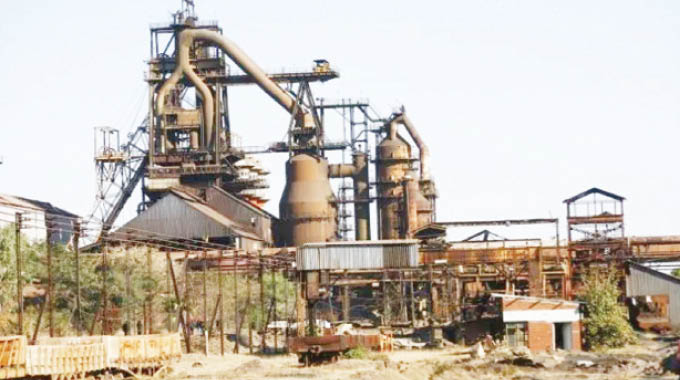Zisco urged to use its coke ovens, foundries

Michael Magoronga, Midlands Correspondent
ZIMBABWE’S defunct steel producer, Zisco, should leverage on its foundries and coke ovens that are still operational to produce mining and farming equipment as a first step towards the firm’s resuscitation, an official has said.
The Redcliff-based steel producing company ceased operations in 2008 due to operational constraints it went through on the back of the illegal sanctions imposed on Zimbabwe by Britain and her allies after the country embarked on the successful Land Reform programme in 2000.
In line with the aspirations of the National Development Strategy 1, the Second Republic was seized with efforts to secure a strategic investor to revive operations at Zisco.
Recently, the Zisco board chaired by Engineer Martin Manhuwa announced that they were presently in the process of adjudicating the steel giant’s potential partners with the hope of coming up with the best from the seven potential investors.
In an interview, Zimbabwe Institute of Foundries (ZIF) chief operations officer Mr Dosman Mangisi said: “As ZIF we are solidly behind the revival of Zisco, but the current state of structures at the company is that all are now obsolete.
“All the steel structures including those furnaces are now obsolete. As ZIF we are urging Zisco to consider using their foundries, which are still operational, as a way of breathing life into the company.”
Zisco has received bids from seven potential investors from which one will be successful and takeover the task of reviving the former steel giant.
The company’s board has designed a roadmap that involves modernisation and financial sustainability expected to help in the revival of the company.
Part of the roadmap is the short-term revival strategies targeting resuscitation of subsidiaries and bargaining on low-hanging fruits.
Mr Mangisi said all the obsolete structures at Zisco should be considered as scrap, and using its foundry, the firm should consider manufacturing mining and farming equipment which are on high demand locally.
“Zisco has a full-fledged foundry with all the necessary equipment to be able to manufacture the equipment. Using its foundry, Zisco can then take all the obsolete steel and use it to manufacture biters, bowl mills, water pumps and other equipment required by the mining and farming industry,” he said.
By doing so, the country will cut the import bill while also creating employment before full-throttle steel manufacturing operations begin.
“Currently, the company is employing about 400 workers but if the foundry and the coke ovens are operational, employment can be raised to about 1 500 workers.”
Mr Mangisi said the model, based on value addition and beneficiation, can also see local companies benefiting.
Using its coke ovens, Mr Mangisi said, Zisco can centralise coke manufacturing and become a raw material-manufacturing hub, substituting imports.
The local foundry industry is currently faced with a shortage of scrap metal and has been advocating for the Government to ban exportation of scrap.
Before going to the market, Zisco carried out several studies including technical evaluation, and market study which brought about possible trajectories to be possibly followed.








Comments